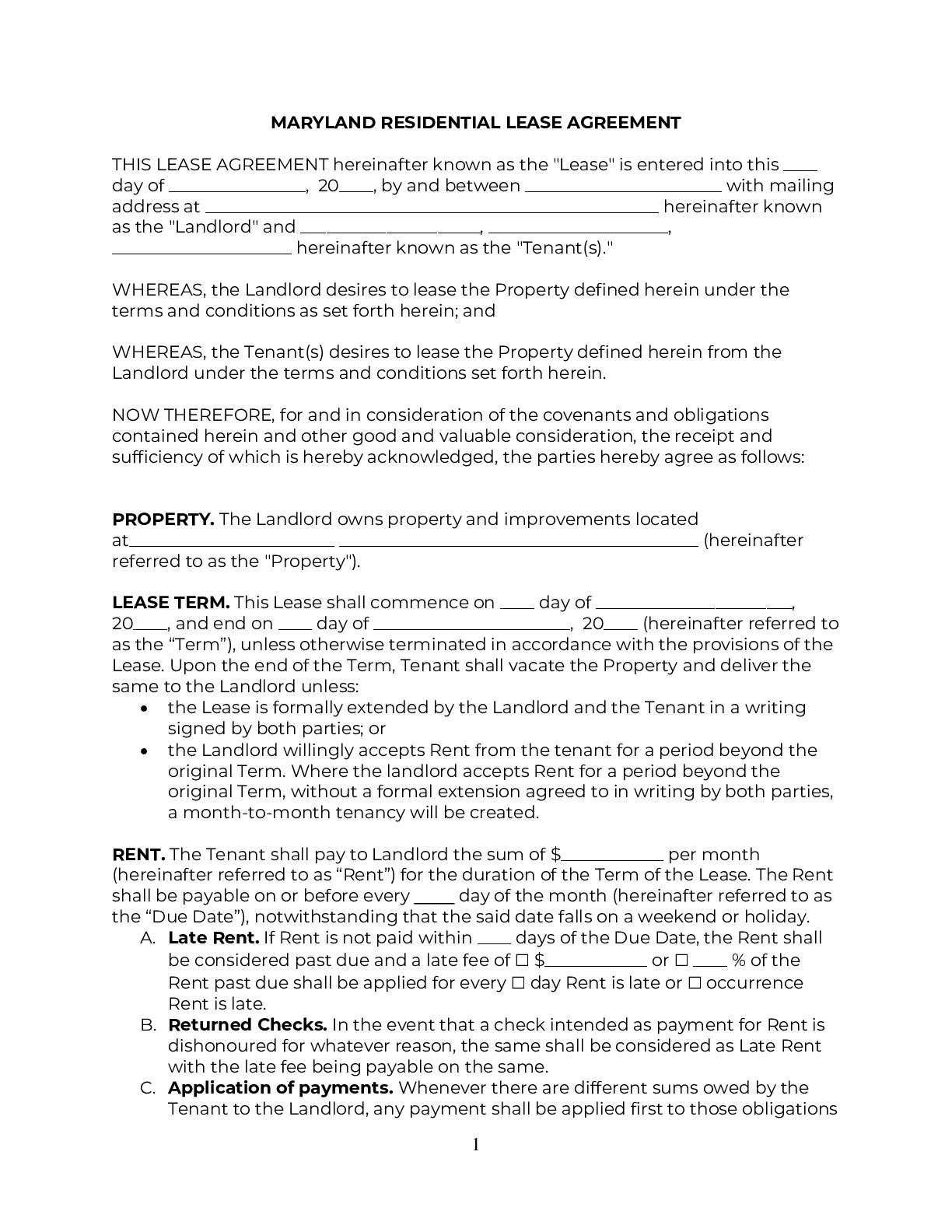The Tenant's Handbook: Navigating Maryland's Leasing Laws
The Tenant's Handbook: Navigating Maryland's Leasing Laws
Blog Article
Leasing a house is not just a matter of paying rent and moving in; it's a legal relationship with dimensions of rights and responsibilities that have to be clearly understood. This really is especially true as it pertains to residential lease agreements in their state of maryland lease agreement.The Old Line State has specific laws and regulations that govern these contracts, which can sometimes be complex for both landlords and tenants to comprehend.
In this informative article, we'll give a straightforward guide to navigating Maryland's residential lease agreements, offering clarity to ensure that you, whether as landlord or tenant, are well-informed about your legal standing in the leasing process. Here's things you need to know.

Overview of Maryland Lease Agreement Laws
Maryland's lease agreement laws exist to safeguard the rights of both landlords and tenants. The Maryland Attorney General's website is a valuable resource for detailed information about these laws. It's worth noting that lease agreements may be both written and oral, though a published contract is generally recommended for the protection of all parties involved.
When drafting or signing a lease agreement in Maryland, it must include:
The names and signatures of parties involved
The property address and an intensive description of the premises
The word of the lease and whether it is a fixed-term or month-to-month agreement
The total amount of rent, the deadline, and the acceptable payment methods
The security deposit amount and terms for its return
Any late fees or other charges that will apply
The responsibilities of both the landlord and tenant concerning maintenance and repairs
Any rules or regulations applicable to the property, such as for example noise restrictions or pet policies
It's important to examine these elements carefully and make sure you understand them before signing a lease agreement.
Understanding the Lease and Rental Process
Rental application processes vary by landlord, but you will find certain rights tenants have throughout. Landlords in Maryland may charge an application fee but must generally supply a receipt and return any unused portion of the fee if the application form is not approved. Conversely, tenants should remember that once a security deposit is paid, it legally belongs to the landlord before the lease ends and may possibly not be used as rent.
In the state, lease and rental agreements should also comply with Fair Housing laws, ensuring that tenants aren't unlawfully discriminated against.

Resolving Landlord-Tenant Disputes
Disputes can arise from various areas such as security deposit deductions, maintenance and repair issues, or lease termination. Under Maryland law, tenants have the proper to a safe and habitable dwelling, and landlords are expected to make repairs within reasonable timeframes after being notified. If these rights are violated or if there is a dispute, tenants can pursue legal action through the District Court's Landlord-Tenant docket.
Understanding your rights and responsibilities could be the first step in renting or leasing property. The detailed nature of Maryland's lease laws means that the more informed you're, the higher you are able to protect yourself in the rental process.
Whether you're a veteran landlord or a new tenant, being proficient in Maryland's residential lease agreements is vital. This not only sets the stage for a better rental, but inaddition it helps to begin a positive relationship between both parties.
Report this page